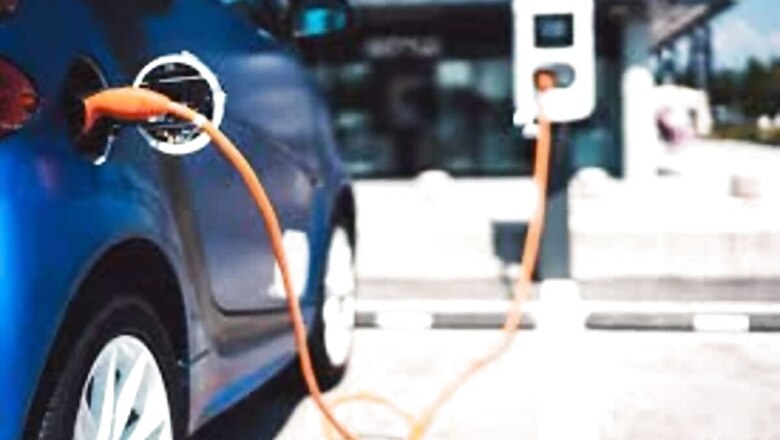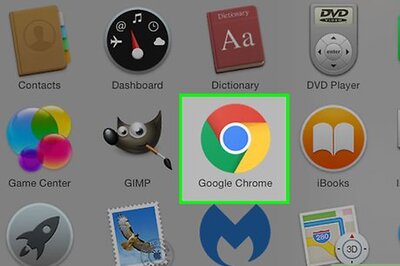
views
With the adoption of electric vehicles gaining momentum in India, the Gujarat govt today unveiled a four-year plan to be offered as a subsidy or incentive for new buyers of electric vehicles as well as for those investing in the development of infrastructure for EVs.
Addressing a press conference, Gujarat Chief Minister Vijay Rupani unveiled the state’s EV policy will prove to be fruitful for those purchasing an electric two-wheeler, three-wheeler, or four-wheeler, etc.
The EV policy was launched with a motive to help the state save fuel expenditure of up to Rs 5 crore, and also reduce CO2 emissions by six lakh tonnes in the next four years.
How Beneficial is this policy for Buyers?
The EV policy is one where the state government will provide subsidies to buyers of three categories of electric vehicles the two-wheelers, three-wheelers, and four-wheelers. The policy targets to subsidize the purchase of a total 200,000 EVs, which will include 110,000 e-two-wheelers, 70,000 e-three-wheelers, and 20,000 e-four-wheelers. Notably, the policy will be valid till 1 July 2025.
As per sources, the incentive of Rs 10,000 per kWh of battery capacity is the highest offered by any state in India but the total subsidy is capped at Rs 20,000 for electric scooters and motorcycles, Rs 50,000 for e-rickshaws, and at Rs 1.5 lakh for electric cars and SUVs. Once the purchase document of the vehicle has been authenticated, incentives will be credited directly by the state transport department to the buyer’s bank account.
The subsidy is being offered to those buying the vehicles for private use and is not limited to commercial buyers which means that in order to qualify for this incentive, an e-two-wheeler cannot exceed Rs 1.5 lakh. Similarly, the cap for e-rickshaws to be eligible is Rs 5 lakh, and for electric cars, it’s Rs 15 lakh.
As per sources, the Gujarat govt is also likely to waive off the registration fee for buyers of electric vehicles, making them that much more affordable.
What are the benefits for charging infrastructure developers?
With the EV policy coming into effect, the govt aims to add 250 more charging stations to the existing number of 278. The government stated that it will also be providing approval to fuel pumps across the state to set up EV charging stations in their premises. Additionally, Gujarat will waive off electricity duty for EV charging stations for the duration of the policy. The policy also directs all housing and commercial establishments to furnish a ‘No Objection Certificate’ (NOC) to members who want to install charging stations, and allot designated parking spaces
How will the policy impact the EV industry?
The EV policy of the govt was hailed by many belonging to the EV industry. Talking to Firstpost, Sohinder Gill, Director General, Society of Manufacturers of Electric Vehicles (SMEV), said, “We thank the government of Gujarat for announcing a promising and a bold EV policy. The policy certainly has a potential to make Gujarat an EV hub and would mobilise a rapid adoption of electric vehicles in the state. We are excited to be part of this journey and would put our all efforts towards achieving the state government’s target under the policy. The policy also gives thrust on the charging infrastructure that would address the issue of range anxiety, especially amongst the people who want to buy an electric four-wheeler.”
Tarun Mehta, co-founder and CEO of Ather Energy, also welcomed the Gujarat government’s new EV Mr. Mahesh Babu, CEO, Mahindra Electric Mobility Ltd, responded to the policy announcement with enthusiasm, as the policy is likely to spur sales of the brand’s Treo electric three-wheeler in the state.
“We thank the Gujarat government for notifying the new EV policy which is both progressive and comprehensive in nature. The outlay of Rs 870 crore over the next four years will help EVs flourish in the state of Gujarat”, said Babu.
Read all the Latest News, Breaking News and Coronavirus News here.




















Comments
0 comment